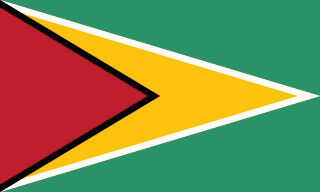
The politics of Guyana takes place in a framework of a presidential representative democratic republic, whereby the President of Guyana is the head of government and of a multi-party system. Executive power is exercised by the President, advised by a cabinet. Legislative power is vested in both the President and the National Assembly of Guyana. The judiciary is independent of the executive and the legislature.

The Reform Party of Canada was a right-wing populist federal political party in Canada that existed from 1987 to 2000. Reform was founded as a Western Canada-based protest movement and eventually became a populist conservative party, with strong social conservative elements. It was initially motivated by the perceived need for democratic reforms and by profound Western Canadian discontent with the Progressive Conservative (PC) federal government of Brian Mulroney.

Samuel Archibald Anthony Hinds is a Guyanese politician who was Prime Minister of Guyana almost continuously from 1992 to 2015. He also briefly served as President of Guyana in 1997. He was awarded Guyana's highest national award, the Order of Excellence (O.E.) in 2011.

Linden Forbes Sampson Burnham was a Guyanese political leader and leader of Guyana from 1964 until his death, as the first Prime Minister from 1964 to 1980 and as second President from 1980 to 1985. He is widely regarded as a strongman who fought for nationalism and encouraged Guyanese to manufacture and export more local product.

Elections in Guyana take place within the framework of a multi-party representative democracy and a presidential system. The National Assembly is directly elected, with the nominee of the party or alliance that receives the most votes becoming President.

The National Front Alliance is a political party in Guyana.

The People's National Congress - Reform is a socialist political party in Guyana led by David A. Granger. The party currently holds 22 of the 65 seats in the National Assembly. In Guyana's ethnically divided political landscape, the PNCR is supported primarily by Afro-Guyanese people.

The Liberal Democratic Party of Ukraine is a political party in Ukraine registered in July 1992.
The Alliance for Change (AFC) is a political party in Guyana.
Raphael Trotman is a Guyanese lawyer and politician. He was the Speaker of the National Assembly of Guyana from 2011 to 2015. He is the country's Minister for Natural Resources.

The Constitution of Guyana is the highest governing document in the Republic of Guyana. It came into effect on October 6, 1980, replacing the constitution enacted in 1966 upon its independence from the United Kingdom. The current Constitution of Guyana contains 12 chapters that are further divided into 232 articles. It also contains a preamble and an oath. Since its 1980 enactment, it has gone through multiple amendments.

General elections were held in Guyana on 28 November 2011. The result was a victory for the People's Progressive Party, which won 32 of the 65 seats. Thus even though the combined parliamentary opposition, consisting of the A Partnership for National Unity coalition (APNU) and the Alliance for Change (AFC), managed to secure an absolute majority of 33 seats, as they had not run as a single list it was Donald Ramotar of the PPP who assumed the presidency, and not David A. Granger of the PNC.

The Liberator Party was a right-wing political party in Guyana.

The Democratic Labour Movement (DLM) was a political party in Guyana.

A Partnership for National Unity (APNU) is a left-wing political alliance in Guyana.

The People's Democratic Movement (PDM) was a centrist political party in Guyana.

The National Republican Party (NRP) was a right-wing political party in Guyana.









